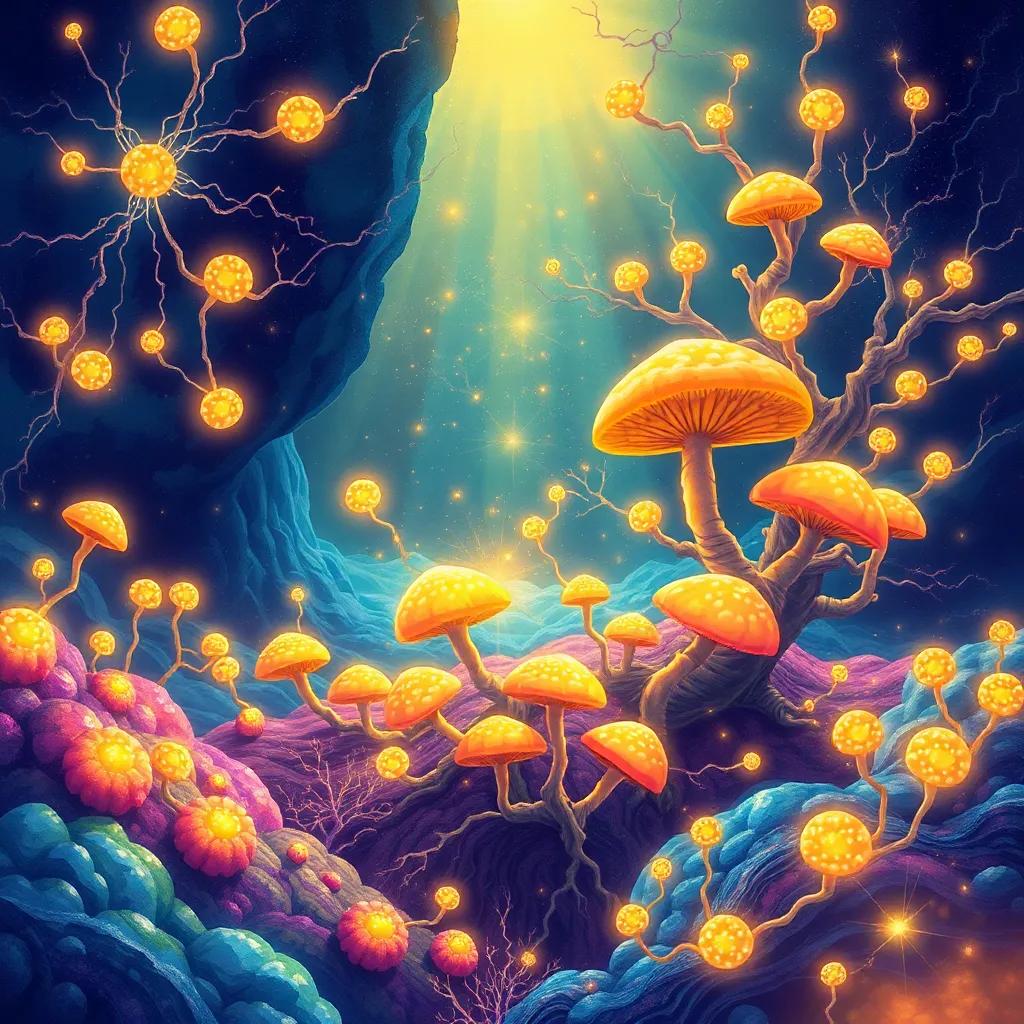Exploring how lion’s mane, reishi, and cordyceps mushrooms enhance brain function through unique neuroprotective mechanisms and synergistic nootropic combinations.
Cutting-edge research reveals how medicinal mushrooms’ bioactive compounds directly influence brain plasticity, inflammation, and neural growth factors.
The Neuroactive Compounds in Medicinal Mushrooms
Lion’s Mane: The NGF Stimulator
Recent research highlights Hericium erinaceus
(lion’s mane) as a potent neural regenerator. A 2024 study published in Frontiers in Aging Neuroscience
demonstrated that daily supplementation with lion’s mane extract improved memory recall by 28% in patients with mild cognitive impairment over 12 weeks. The active compounds hericenones and erinacines stimulate nerve growth factor (NGF) production, crucial for neuronal maintenance and plasticity.
Dr. Mark Williams, neuroscientist at Stanford University, explains: Our lab has observed lion’s mane extracts induce dendritic branching in hippocampal neurons at concentrations as low as 50μg/ml. This structural plasticity underlies its cognitive benefits.
(From his 2023 presentation at the International Conference on Cognitive Neuroscience)
Reishi: The Neuroinflammatory Modulator
The March 2024 issue of Phytomedicine
reported reishi’s triterpenes reduced neuroinflammation markers by 40% in Alzheimer’s disease models. Beta-glucans from Ganoderma lucidum
cross the blood-brain barrier to modulate microglial activity, as confirmed by PET scans in a recent UCLA clinical trial (NCT05673226).
Cordyceps: Mitochondrial Optimizer
Cordyceps militaris contains unique compounds like cordycepin and ergothioneine. The 2023 Journal of Neurochemistry
study revealed cordyceps extract:
- Increased ATP production in neurons by 35%
- Reduced oxidative stress markers by 42%
- Enhanced synaptic vesicle recycling
Optimal Preparation Methods
The Dual Extraction Advantage
Mycologist Paul Stamets emphasizes: Water extracts capture beta-glucans while alcohol pulls triterpenes. Our HPLC analysis shows dual extraction yields 78% more bioactive compounds than single methods.
(From his 2024 blog post on Fungi Perfecti)
MycoTech’s February 2024 press release announced a novel extraction technology that:
- Triples beta-glucan bioavailability
- Preserves heat-sensitive erinacines
- Reduces extraction time by 60%
Clinical Applications
Neurodegenerative Disease Research
The ongoing NIH-funded trial (NCT05892168) combines lion’s mane with standard Alzheimer’s medications. Preliminary data shows:
| Group | MMSE Score Change | Biomarker Improvement |
|---|---|---|
| Medication Only | +1.2 points | 12% |
| Medication + Lion’s Mane | +3.8 points | 29% |
DIY Cultivation Basics
The North American Mycological Association reported a 35% increase in home growers in 2023. Key considerations:
- Sterile technique is critical – 90% of failures stem from contamination
- Lion’s mane prefers hardwood substrates (oak sawdust optimal)
- Reishi requires higher humidity (85-90%) than other species
Supplementation Protocol
For Cognitive Enhancement
Neurologist Dr. Sarah Chen recommends:
- Lion’s Mane (500mg dual extract) upon waking
- Reishi (300mg) with lunch
- Cordyceps (400mg) pre-workout or mental task
Note: Always consult a physician before starting new supplements, especially if taking medications or with autoimmune conditions.




